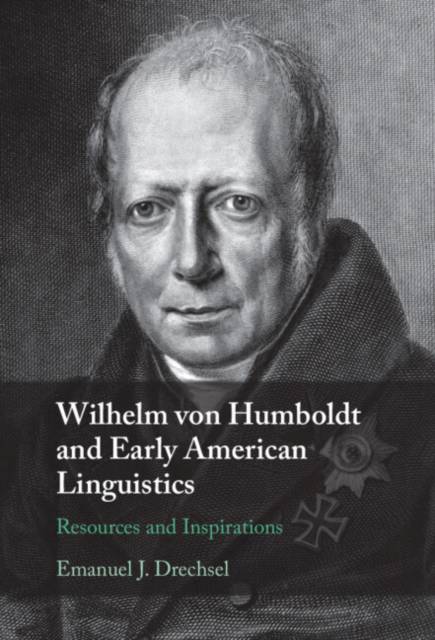
Je cadeautjes zeker op tijd in huis hebben voor de feestdagen? Kom langs in onze winkels en vind het perfecte geschenk!
- Afhalen na 1 uur in een winkel met voorraad
- Gratis thuislevering in België vanaf € 30
- Ruim aanbod met 7 miljoen producten
Je cadeautjes zeker op tijd in huis hebben voor de feestdagen? Kom langs in onze winkels en vind het perfecte geschenk!
- Afhalen na 1 uur in een winkel met voorraad
- Gratis thuislevering in België vanaf € 30
- Ruim aanbod met 7 miljoen producten
Zoeken
Wilhelm von Humboldt and Early American Linguistics
Resources and Inspirations
Emanuel J Drechsel
Hardcover | Engels
€ 194,95
+ 389 punten
Omschrijving
Wilhelm von Humboldt (1767-1835), an early pioneer in the philosophy of language, linguistic and educational theory, was not only one of the first European linguists to identify human language as a rule-governed system -the foundational premise of Noam Chomsky's generative theory - or to reflect on cognition in studying language; he was also a major scholar of Indigenous American languages. However, with his famous naturalist brother Alexander 'stealing the show, ' Humboldt's contributions to linguistics and anthropology have remained understudied in English until today. Drechsel's unique book addresses this gap by uncovering and examining Humboldt's influences on diverse issues in nineteenth-century American linguistics, from Peter S. Duponceau to the early Boasians, including Edward Sapir. This study shows how Humboldt's ideas have shaped the field in multiple ways. Shining a light on one of the early innovators of linguistics, it is essential reading for anyone interested in the history of the field.
Specificaties
Betrokkenen
- Auteur(s):
- Uitgeverij:
Inhoud
- Aantal bladzijden:
- 364
- Taal:
- Engels
Eigenschappen
- Productcode (EAN):
- 9781108833042
- Verschijningsdatum:
- 1/02/2024
- Uitvoering:
- Hardcover
- Formaat:
- Genaaid
- Afmetingen:
- 152 mm x 229 mm
- Gewicht:
- 653 g

Alleen bij Standaard Boekhandel
+ 389 punten op je klantenkaart van Standaard Boekhandel
Beoordelingen
We publiceren alleen reviews die voldoen aan de voorwaarden voor reviews. Bekijk onze voorwaarden voor reviews.









